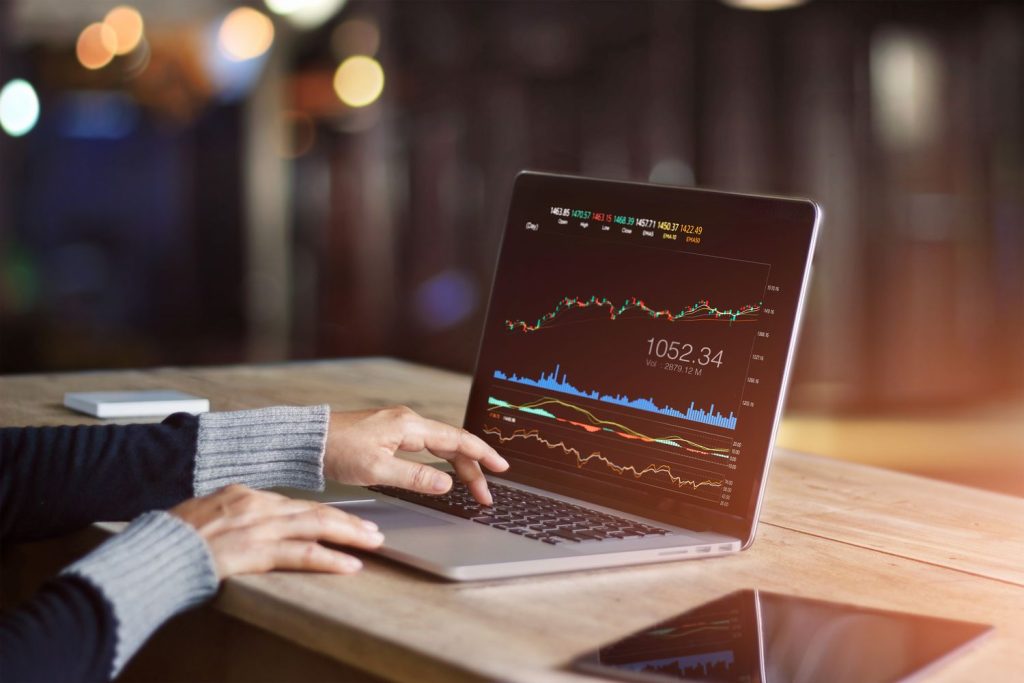Online trading is a phrase everyone is talking about these days, with men and women of all ages getting on board. But what exactly is online trading? Well, essentially it is the process of buying and selling financial products through an online platform. Where once people got involved in stocks and shares in person, the development and growth of technology and the internet is making it easier than ever for ordinary people to trade stocks, bonds, currencies, and other assets.
More and more people are looking to invest through online trading. However, along with this new form of investment comes a myriad of terms that can be difficult to decipher. There are also several investment options available. Therefore, it can be difficult to know where to get started and much of the lingo may go over our heads. In this article, we’ll cover the basics of online trading and explore some of the most popular instruments available to traders today.
Online brokers
An online broker, much like any other kind of broker, acts as a go-between from the trader to the product being traded. Basically, it is a platform that allows you to trade financial assets using the internet. There are many online brokers to choose from, each with its own unique features and advantages. It is always advisable to potential traders to carry out some thorough research and read plenty of reviews to find the online broker that best suits your requirements.
The process of trading with an online broker is fairly simple. First off you will need to register for an account and fund it with cash. From there, you will be able to access a variety of trading tools and resources that will help you make informed decisions about your investments.
Cryptocurrencies
Cryptocurrencies are digital currencies that uses a technology called cryptography to secure transactions and control the creation of new units. The most well-known cryptocurrency is Bitcoin, but many others exist too, including Ethereum, Ripple, and Litecoin. Cryptocurrencies can be bought and sold on a variety of online exchanges, and many online brokers also offer cryptocurrency trading.
Cryptocurrencies are used for a variety of purposes, including as a medium of exchange for goods and services, as an investment vehicle, and as a means of payment for online transactions. The value of cryptocurrencies is determined by supply and demand, and can fluctuate widely, sometimes on a daily basis.
Forex
Forex, or foreign exchange, is the name given to the market where currencies are traded. The purpose of buying and selling different currencies is to make a profit from changes in their exchange rates. It is the biggest financial market in the world and it probably goes without saying that it is one of the most variable too.
As a forex trader, you will need to use technical and fundamental analysis to predict exchange rate movements and make trades accordingly. Technical analysis involves using charts and other tools to identify patterns in currency prices and make trades based on those patterns. Fundamental analysis involves looking at economic indicators and news events to determine the underlying strength of a currency and make trades based on that information. It requires a trader to be very much on the ball when it comes to global and geological events, which currencies are always sensitive to. Forex trading can be done through a broker, or directly through an online trading platform.
CFDs
A contract for difference, or CFD, is a derivative product that allows investors to speculate on the price of an underlying asset. It sounds complex to begin with but with a little time, it is possible to get your head around it. Essentially, it allows investors to trade the price of an underlying asset, without actually owning or holding that asset. In exchange for a small initial premium, the investor can enter into a contract to buy or sell a specific underlying asset at a specified date in the future. CFDs are available for a variety of financial products, including stocks, bonds, currencies, and commodities. CFD trading Equiti can involve a higher level of risk, so perhaps not for beginners, but have many advantages too. For example, it is relatively easy to carry out and ideal for short term investments.
CFDs are highly leveraged, meaning that traders can control a large amount of money with a relatively small investment. This can lead to large profits, but also large losses if the trade goes against the trader. CFDs are not suitable for everyone and it is important to understand the risks involved and only trade with money that can be afford to lose.
Conclusion
It is clear that online trading can offer a wealth of opportunities for investors, but it can also be a complex and confusing world. The topics covered above provide only a brief insight into the world of online trading. However, if you know some of basics of the online trading world, you’ll be better equipped to make informed decisions about your investments. As with any form of investment, it is important to do your own research, seek the advice of a financial professional before making any trades and fully understand the journey you will be embarking on.
